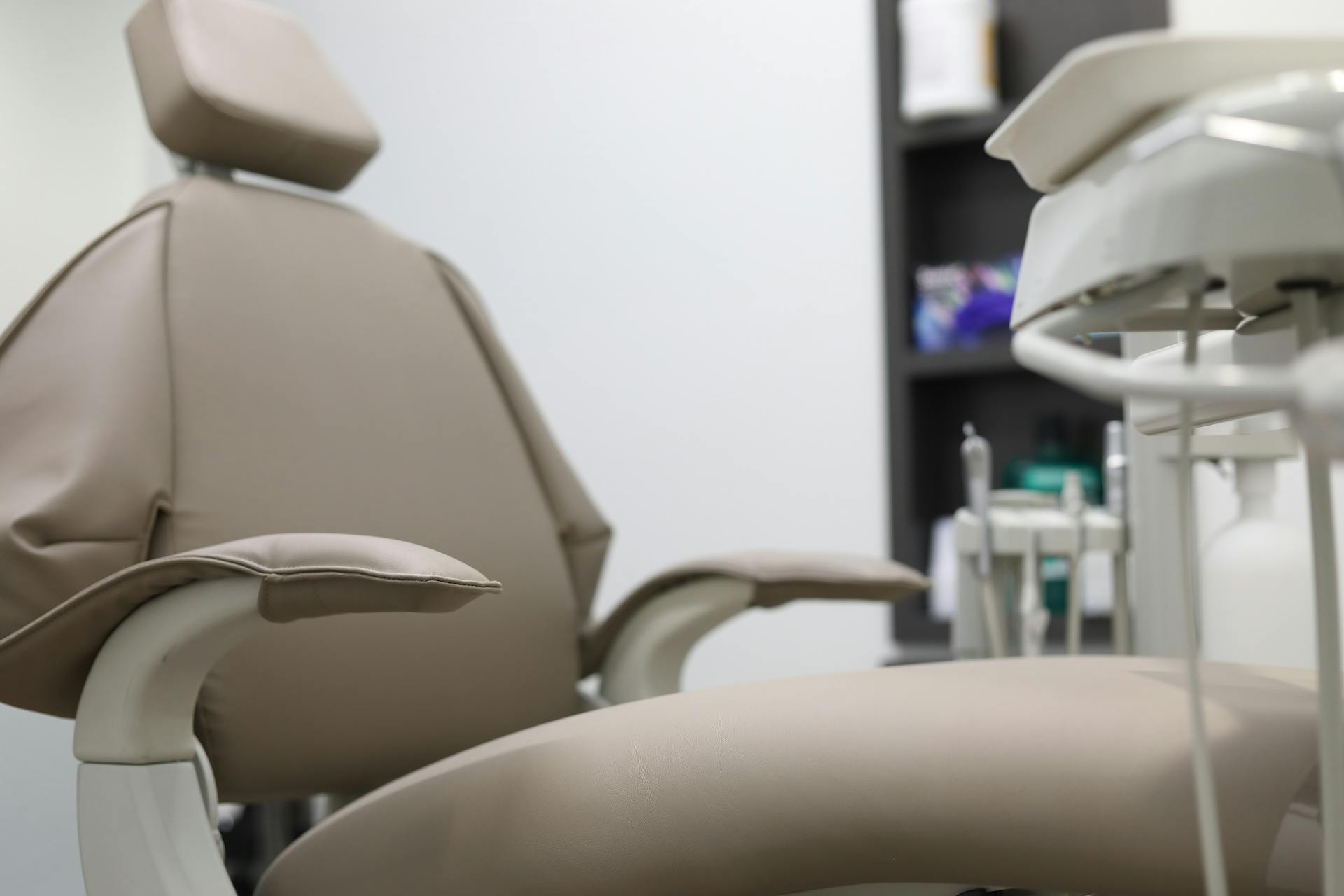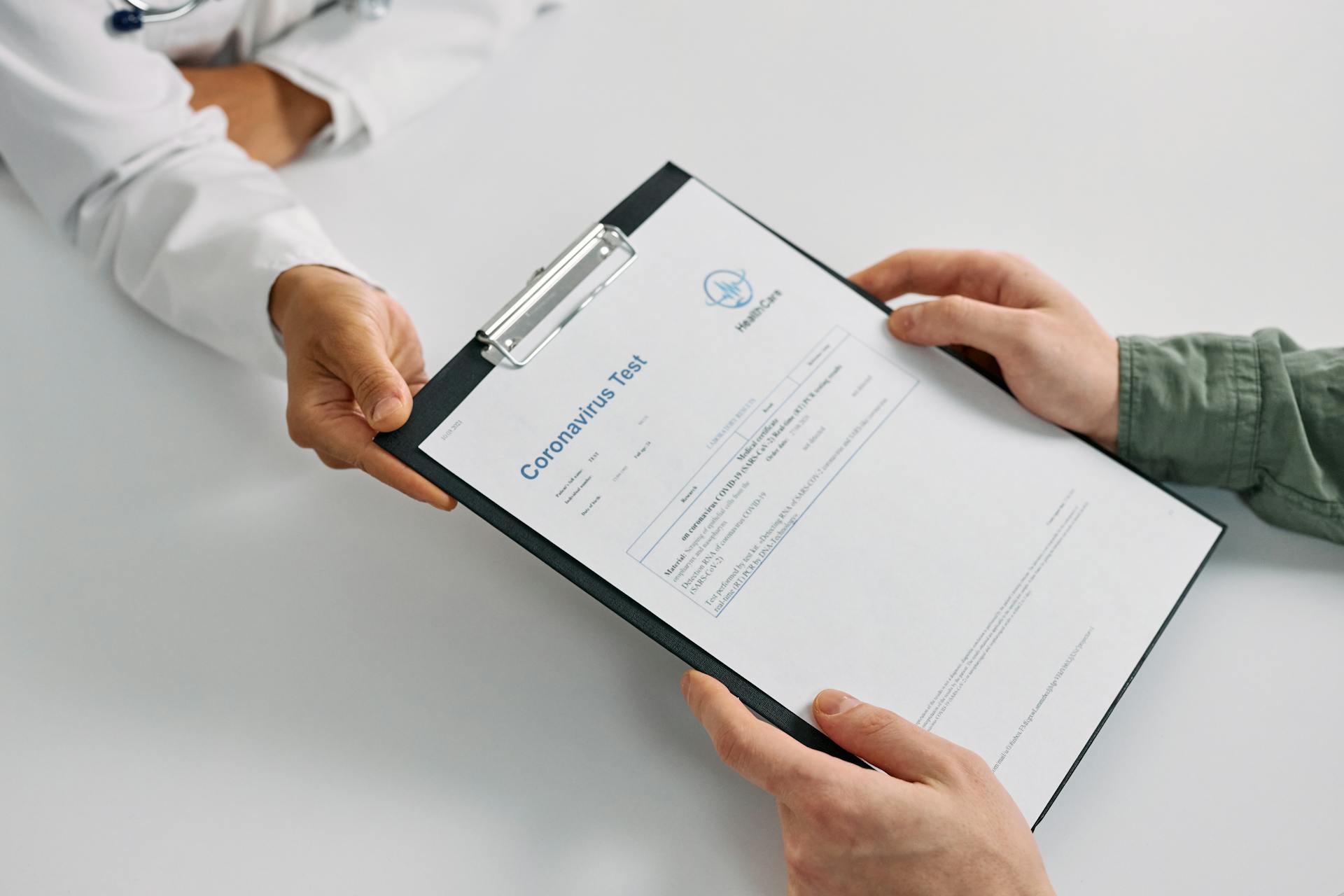
Informaticists are the unsung heroes of the healthcare industry, working behind the scenes to ensure that medical information is accurate, accessible, and secure. They play a vital role in improving patient care and outcomes.
Informaticists typically hold a master's degree in nursing informatics or a related field, and many have a background in nursing or healthcare. According to the American Nurses Association, there are over 10,000 informaticists employed in the US healthcare industry.
Their work involves designing, implementing, and evaluating health information systems, which can include electronic health records, telemedicine platforms, and patient engagement tools. A study by the American Medical Informatics Association found that 80% of informaticists work in hospitals or health systems, while 15% work in consulting or research roles.
As an informaticist, you'll have the opportunity to make a real difference in people's lives by improving the quality and efficiency of healthcare delivery. With a median salary of $115,000 per year, according to the Bureau of Labor Statistics, informaticists are also well-compensated for their expertise.
You might enjoy: Clinical Informaticists
What is an Informaticist?
An informaticist is a specialist who bridges the gap between technology and various industries, using their expertise to design, implement, and optimize information systems.
Informaticists possess a deep understanding of a specific domain, whether it's healthcare, finance, education, or other sectors. They work to leverage technology to enhance efficiency, decision-making, and overall outcomes.
Informaticists are instrumental in shaping how organizations utilize and benefit from information technology. They contribute to data-driven decision-making in diverse industries.
In healthcare informatics, informaticists can improve patient care by designing and implementing effective information systems. This can lead to better health outcomes and more efficient patient care.
Education and Certification
To become a nurse informaticist, you'll typically need at least a bachelor's degree. A Bachelor of Science in Nursing (BSN) is a common path, but you can also earn a degree in health information technology or healthcare informatics.
Most nursing informaticists hold degrees higher than a bachelor's, and earning a certification or graduate degree can be beneficial for advancing your career. In fact, 66 percent of nursing informaticists have a master's-level degree.
To become certified, you can choose from options like the Certified Associate in Healthcare Information Management Systems (CAHIMS) or the Certified Professional in Healthcare Information and Management Systems (CPHIMS). These certifications can give you a leg-up on your competition and may lead to higher salaries.
Here's a rough idea of the salary ranges for nurse informaticists with different levels of education and certification:
Pursue Advanced Education
You'll generally need a bachelor's degree to work as a nurse informaticist, but many hold degrees higher than a bachelor's. Earning a certification, a graduate degree, or both, can be a big help, particularly if you want to advance or take on a leadership role.
A master's degree is becoming increasingly common among nursing informaticists, with 66 percent of them holding a master's-level degree. You can earn a Master of Science in Nursing (MSN) in nursing informatics specifically.
An MSN can allow you to apply for higher-level roles and leadership positions. You can also reach beyond a master's degree and earn a doctorate, which can open even more leadership and administrative roles and help you advance your career.
Earning a postgraduate degree like an MSN or a DNP may earn you more than those with an ADN or BSN. Nursing informaticists with a master's degree, such as an MSN in nursing informatics, have a higher earning potential.
License and Certification
To become a nurse informaticist, you'll need an active registered nurse (RN) license in good standing. This is the minimum requirement to work in the field.
Certification is growing in importance in nursing informatics. In fact, a 2020 HIMSS survey found that 78% of nurse informaticists felt having a certification added credibility.
You have a couple of certification options from reputable organizations. The American Nurses Credentialing Center (ANCC) offers the Informatics Nursing Certification, which bestows the title NI-BC.
Certification from HIMSS includes two options: the Certified Associate in Healthcare Information Management Systems (CAHIMS) and the Certified Professional in Healthcare Information and Management Systems (CPHIMS).
You can check job listings in your area to see what certifications are preferred by healthcare facilities. This can give you an idea of what to aim for in your career.
Career Advancement
Career Advancement is a key consideration for informaticists. With experience, they can take on more responsibility and move into management roles.
As a nurse informaticist gains experience, they can start to pursue managing roles in their organization. This can lead to higher pay and more opportunities for advancement.
In the nursing informatics world, management often offers a path to higher pay. This is a significant advantage for those looking to advance their careers.
Informaticists can also consider advancing into specialized roles, such as consulting or education. These roles can provide a change of pace and new challenges.
Salary and Benefits
The salary for informaticists can vary widely, with the median salary being $62,990 according to the U.S. Bureau of Labor Statistics.
The U.S. Bureau of Labor Statistics also reports that the bottom 25% of informaticists earn $46,580, while the top 10% earn a median wage of $107,650.
Informaticists can also expect to earn a decent hourly wage, with the lower range averaging around $42,500 and the higher end averaging closer to $166,500, according to ZipRecruiter.
It's worth noting that many nursing informaticists are among the top earners in their category, with some even surpassing the $100,000 mark.
Work Environment and Settings
Informaticists can transfer to a new work setting at any point in their career, allowing them to pursue higher-paying opportunities if they're not satisfied with their current earnings.
Their workplace varies across different domains, reflecting the diverse applications of informatics in various industries. In healthcare informatics, they often work in hospitals, clinics, or healthcare systems, collaborating with healthcare professionals, administrators, and IT teams to implement and optimize health information systems.
Nursing informaticists, in particular, can find work in hospitals, clinics, and other healthcare facilities, with the opportunity to advance to leadership positions like Chief Nursing Informatics Officer. They can also work in higher-paying jobs at IT consulting firms or for vendors who supply services to the healthcare industry.
Here's a breakdown of average nurse informaticist salaries by work environment:
Workplace Environment
The workplace environment of an informaticist can be quite diverse, depending on the domain they work in. In healthcare informatics, they often find themselves in hospitals, clinics, or healthcare systems.
Informaticists in healthcare settings may have offices with collaborative spaces where they work with healthcare professionals, administrators, and IT teams to implement and optimize health information systems. This requires a balance between desk work, meetings, and hands-on involvement with technology.
In finance informatics, informaticists can be found in financial institutions, investment firms, or businesses. They work in dynamic settings where they leverage technology to optimize financial processes, analyze market trends, and enhance decision-making.
Informaticists in finance often collaborate with professionals from finance, risk management, and technology departments to implement and maintain sophisticated information systems that support critical financial operations. This can involve working on-site in offices or remotely.
Educational informaticists work in educational institutions, contributing to the integration of technology in the learning environment. Their workplaces include schools, colleges, and universities.
In manufacturing informatics, informaticists work in manufacturing plants, production facilities, or industrial settings. They have offices on-site where they collaborate with engineers, production managers, and IT teams to apply informatics principles to optimize manufacturing processes.
Agricultural informaticists find their workplaces on farms, agricultural research institutions, or agribusinesses. They use informatics to enhance precision farming, manage data related to crop health, and contribute to efficient agricultural practices.
Regardless of the domain, informaticists may also have opportunities to work remotely or in consulting roles, providing their expertise on projects that align with their specific domain knowledge.
New Work Setting Transfer
As a nursing informaticist, you have the flexibility to transfer to a new work setting at any point in your career. This means you can explore different facilities or departments to find the best fit for your skills and interests.
You can pursue higher-paying work settings if you're not satisfied with your current earnings. This is a great opportunity to increase your income and achieve your financial goals.
Transferring to a new work setting can also give you the chance to work with new technologies and systems, which can be a great way to stay up-to-date in the field.
Nurse Workplaces
Most nurse informaticists are employed at hospitals.
Nurse informaticists can also be found in clinics, although their numbers are still relatively small compared to those working in hospitals.
Some highly qualified nurse informaticists advance to leadership positions, such as serving as the clinical IT leader in large hospital groups under the title of Chief Nursing Informatics Officer.

Nurse informaticists can also work in higher paying jobs at IT consulting firms or for vendors who supply services to the health care industry, often after being identified in a health care setting by the company concerned.
Leading nurse informaticists are increasingly working for policy and standards organizations, such as Judy Murphy, who was appointed as Deputy National Coordinator for Programs & Policy at the Office of the National Coordinator for Health IT at Health and Human Services in Washington, DC.
Nurse Informatics
Nurse informaticists play a crucial role in healthcare, working behind the scenes to ensure that technology supports patient care. They focus on optimizing technology used by nurses, examining how it affects care, and analyzing data to improve patient outcomes.
A nurse informaticist's daily activities can vary depending on their setting, but they often involve selecting hardware and software, training nurses on new systems, and providing ongoing support. They also identify the need for new systems or improvements through observations and data analysis.
Some nurse informaticists choose to work remotely, with 45% able to perform at least some of their work from home. They often work closely with management to develop informatics policies and ensure regulatory requirements are met. A strong technological aptitude and excellent communication skills are essential qualities for a nurse informaticist, who must also be able to organize and manage.
Here are some key organizations for nurse informaticists:
- The American Nursing Informatics Association (ANIA)
- The Alliance for Nursing Informatics (ANI)
- American Nurses Credentialing Centre (ANCC)
- Healthcare Information and Management Systems Society (HIMSS)
Do Nurses See Patients?
As a nurse informaticist, you might wonder if you'll get to see patients face-to-face. Generally, nursing informaticists don’t see patients.
Over 70% of nursing informaticists don’t do any clinical nursing care, according to a 2020 survey from the Healthcare Information and Management Systems Society (HIMSS).
You might be able to work remotely at some point during your workweek, with 45% of nurse informaticists able to perform at least some of their work from home.
Nurse informaticists work behind the scenes, making sure all the systems are in place so that patients can get the care they need.
Nurse Responsibilities and Duties
As a nurse informaticist, your daily activities will vary depending on your work setting, but one thing remains constant: your role as a liaison between the technical and clinical communities. You'll be responsible for identifying, developing, and introducing informatics tools and processes that support the nursing process within your healthcare setting.
Your job will involve selecting hardware and software, ensuring that nurses on the floor know how to use the systems, and providing ongoing support. You'll also be involved in problem-solving and developing new and more efficient systems to improve patient care.
Research and development is another critical function of nurse informaticists. You'll analyze data from electronic information systems to identify trends and frequently occurring errors. For example, you might identify common factors in patients who are later readmitted and develop a system to alert nurses to potential red flags.
You'll also be responsible for teaching nurses and other personnel how to use specific information systems and providing ongoing support. Your ability to communicate well and manage change will be essential in getting technology integrated into the daily workflow.
Some common daily job duties of a nurse informaticist might include:
- Analyzing patient care data and using the results to improve outcomes
- Tracking the success of patient care programs
- Researching or designing new technology for your healthcare facility
- Testing new technology
- Training staff on the use of new technology
- Answering staff questions about medical technology
- Monitoring the results of using the new technology
- Serving as a liaison between nursing staff and technology development departments
- Managing hospital or facility-wide projects
As a nurse informaticist, you'll need to work closely with management to develop and implement informatics policy, ensuring that regulatory, patient safety, and confidentiality requirements are met. Your expertise will be essential in making informed decisions about technology and its impact on patient care.
Difference Between Nurse Informatics and Health Informatics
Nurse informatics and health informatics may seem like interchangeable terms, but they actually refer to distinct roles with different focuses.
Nurse informatics focuses on patient care, specifically by optimizing the technology used by nurses, examining how technology affects care nursing and other healthcare professionals can provide.
Health informatics, on the other hand, focuses on administration concerns, such as data security and technology compliance standards.
In nurse informatics, the goal is to improve patient care, while health informatics aims to analyze data and its impact on hospital or health system operations.
A nurse informaticist bridges the gap between technology and nursing, using expertise to design, implement, and optimize information systems for patient care.
A health informaticist, by contrast, bridges the gap between technology and administration, working to leverage technology to enhance efficiency, decision-making, and overall outcomes.
Here's a quick comparison of the two roles:
Sources
- https://healthtechmagazine.net/article/2020/12/why-all-healthcare-systems-should-hire-clinical-informaticist
- https://nursingeducation.org/careers/nursing-informatics/salary/
- https://www.allnursingschools.com/nursing-informatics/
- https://www.careerexplorer.com/careers/informaticist/
- https://nurseslabs.com/nursing-informatics-nurse-informaticists/
Featured Images: pexels.com


